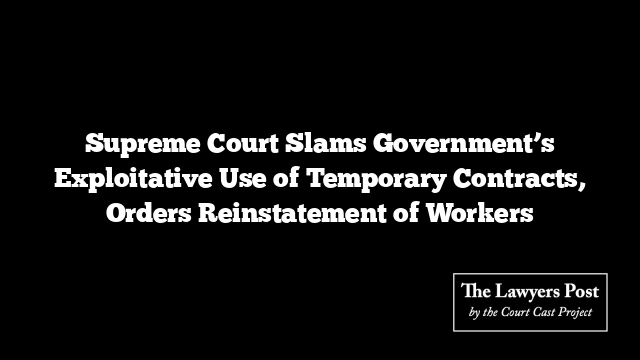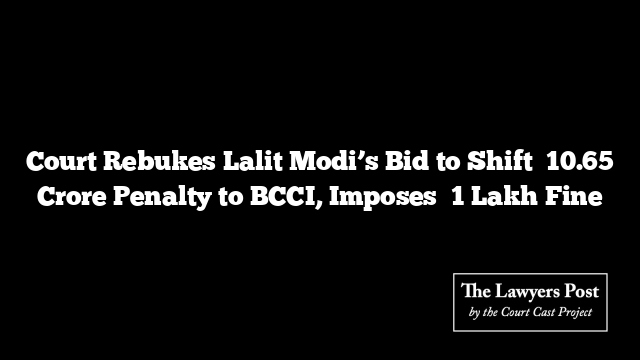The Supreme Court has condemned the widespread misuse of temporary employment contracts in the public sector, calling it a betrayal of workers’ rights and a troubling echo of the gig economy’s exploitative practices. In a case involving long-serving part-time workers at the Central Water Commission (CWC), the Court directed their reinstatement and immediate regularization, citing blatant discrimination and procedural injustice.
A bench comprising Justice Vikram Nath and Justice PB Varale highlighted how temporary contracts, initially designed to address short-term needs, have become tools to dodge long-term employee obligations. The Court stated, “Prolonged temporary engagements for integral roles undermine both employee morale and public trust, setting a damaging precedent for fair labor practices.”
The Case at Hand
The appellants, employed as Safaiwala and Khallasi since the 1990s and early 2000s, carried out essential tasks such as cleaning and office maintenance for the CWC. Despite over two decades of consistent service, their employment remained categorized as “part-time” or “ad-hoc.” In 2015, they sought regularization through the Central Administrative Tribunal (CAT), arguing that their roles were fundamental to the organization’s operations.
However, CAT dismissed their application in 2018, and their services were terminated without notice. Subsequent appeals to the Delhi High Court and later the Supreme Court followed.
The Supreme Court, while overturning previous rulings, emphasized that the appellants’ roles were anything but sporadic. “Their work mirrored responsibilities typically associated with sanctioned posts, underscoring their indispensability to the organization,” the Court noted.
Violations of Justice and Equality
The Court criticized the abrupt termination of the workers without notice, labeling it a violation of natural justice principles. It further highlighted discriminatory practices, pointing out that workers with shorter service durations had been regularized while the appellants were left out.
“This unequal treatment defies the constitutional principles of equality and fairness. Such disparities cannot be allowed to persist under the law,” the judgment stated.
A Call for Reform
The ruling serves as a wake-up call for government institutions to lead by example, ensuring fair and stable employment practices. The Court underscored the broader implications of its decision, urging public sector entities to uphold justice and avoid perpetuating exploitative labor trends.
The reinstatement and regularization of the appellants mark a significant victory for labor rights, setting a precedent that prioritizes fairness over administrative convenience. The judgment reinforces the principle that even contractual employees deserve equitable treatment and due process, affirming that no worker’s contribution should be marginalized under the guise of temporary labels.





